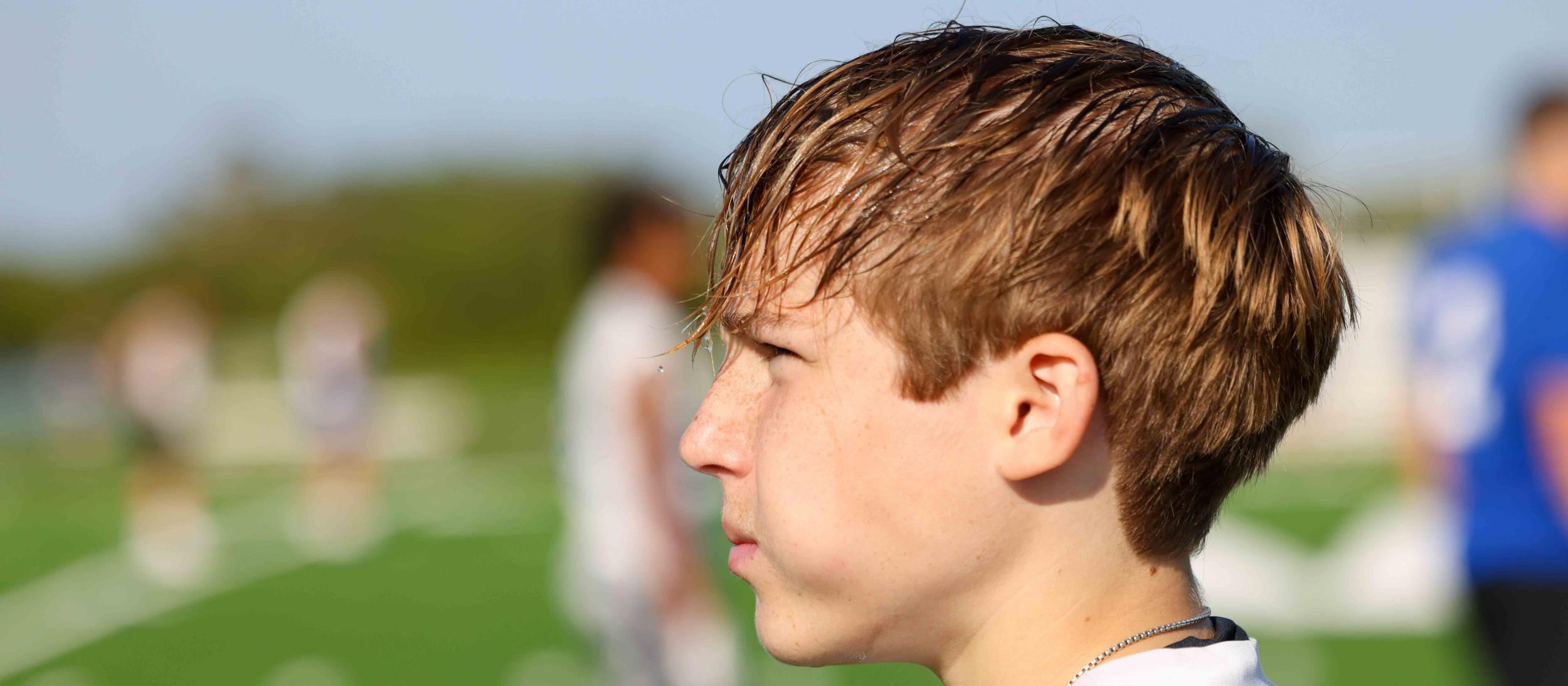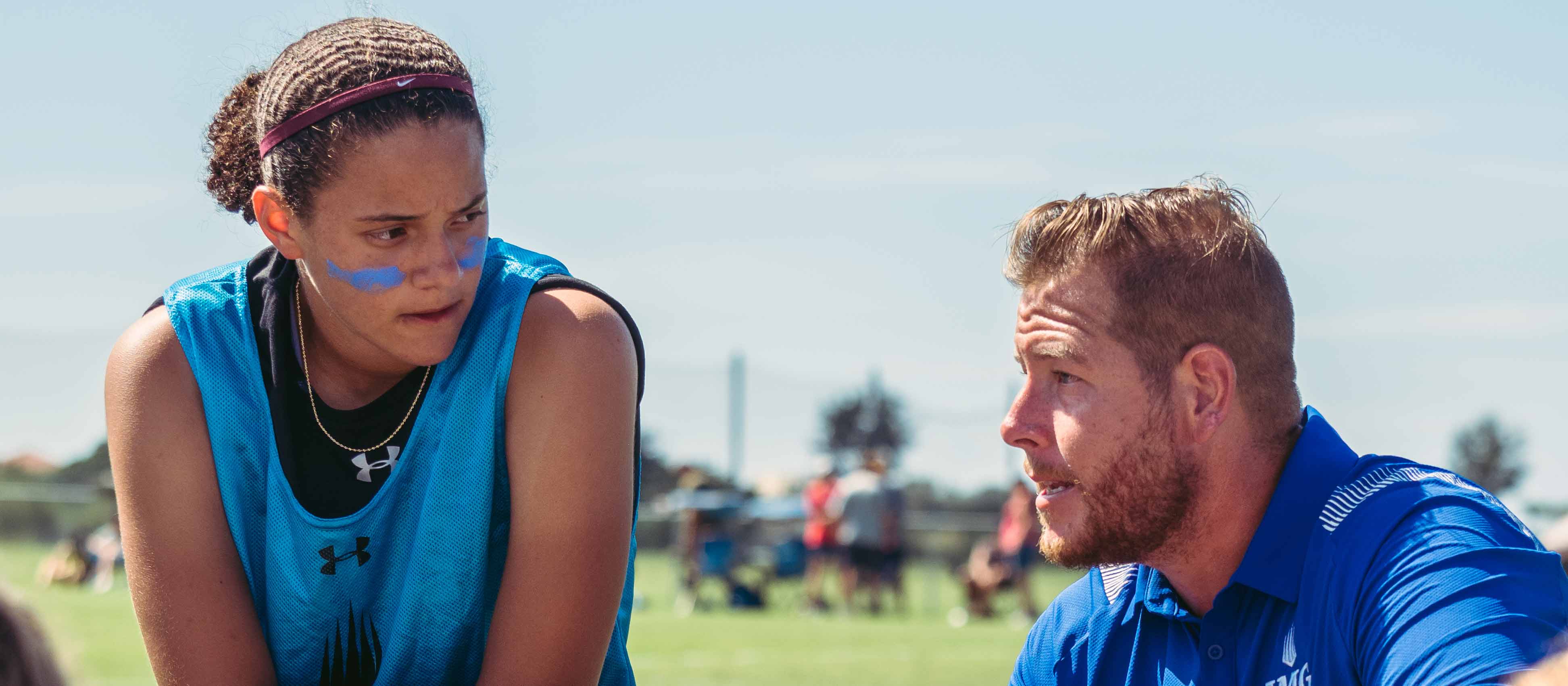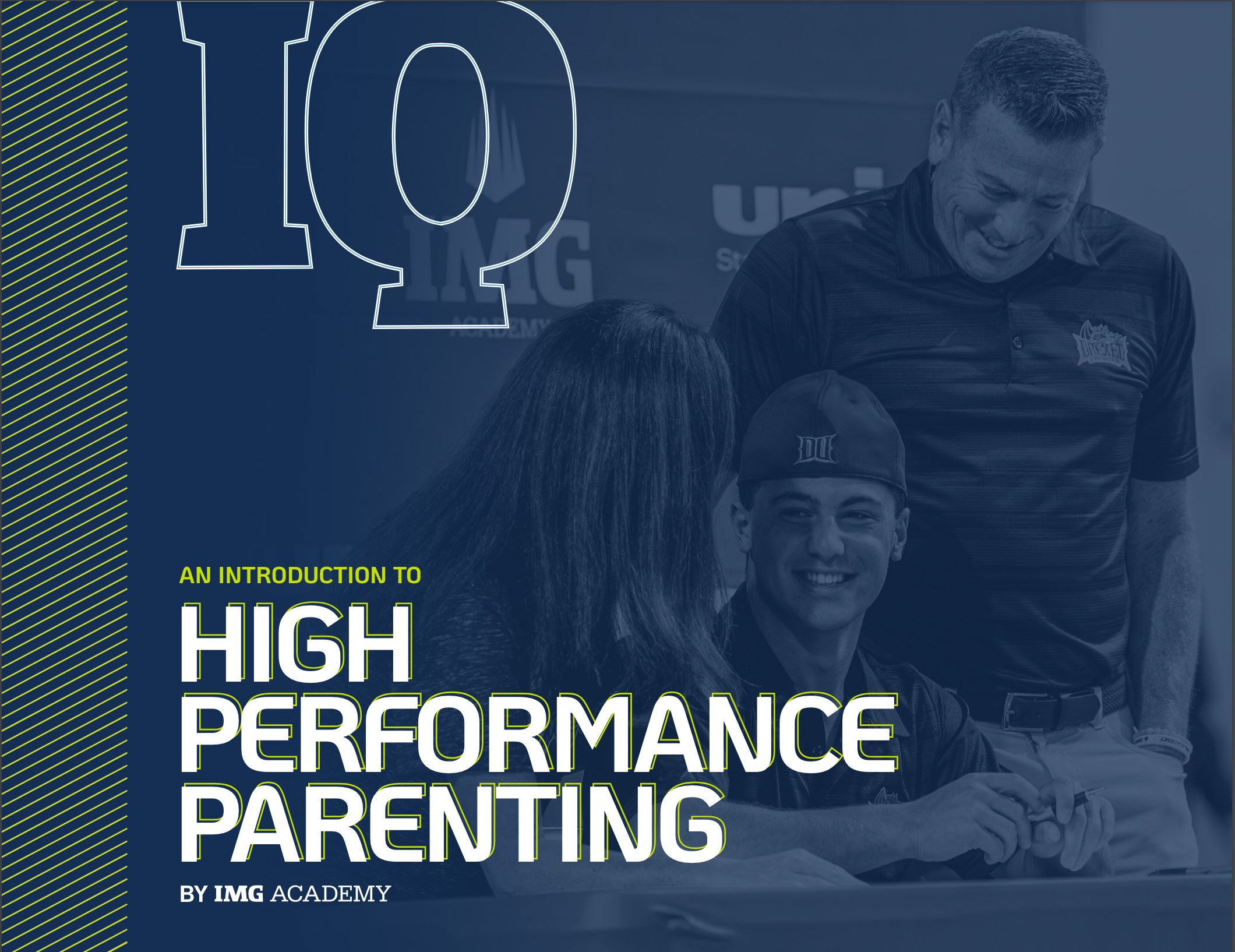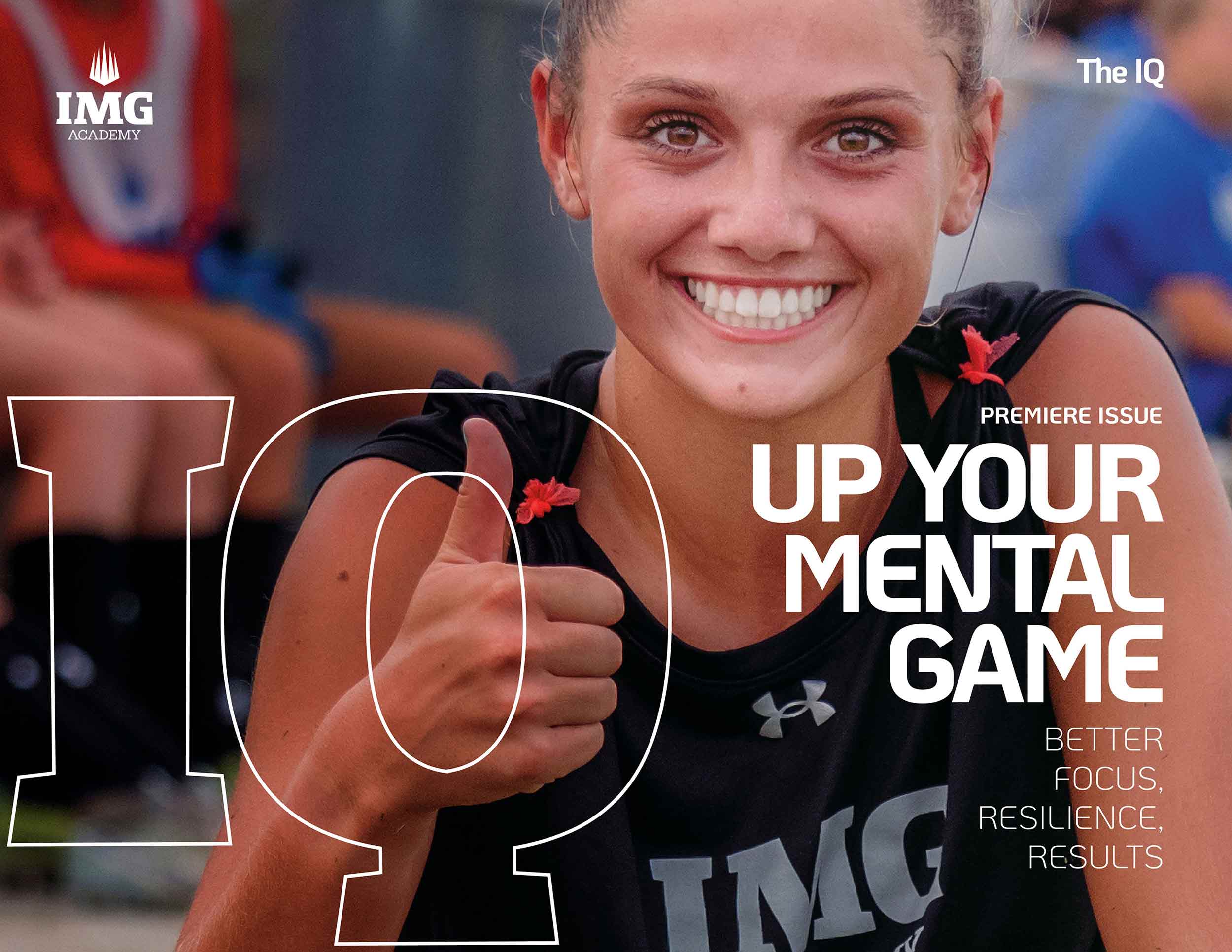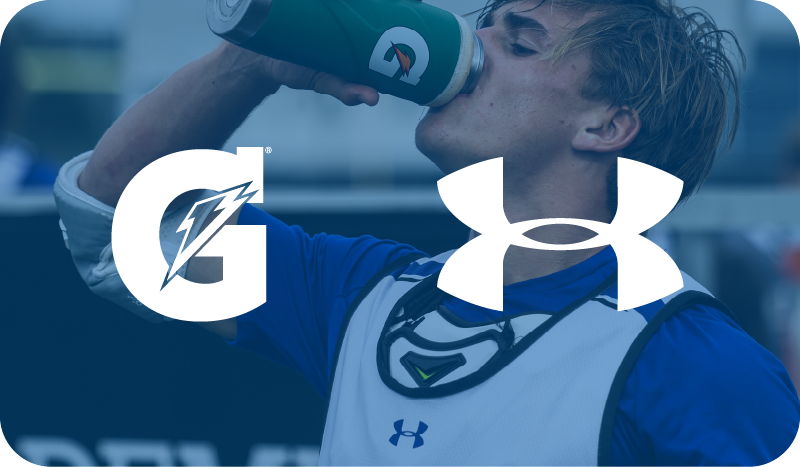Whatever you picture when you think of sports heckling, chances are you’re not envisioning the most likely source of it. Fans yelling rude things from the sideline? It’s not that. Rivals on opposing teams talking trash on the field? Not that, either.
That’s not to say those things don’t happen — they do, despite measures such as IMG Academy’s code of conduct and similar guidelines from sports associations.
But in truth, most external distractions are exactly that — distractions, not intentional interference with a student-athlete’s performance. Fans shouting encouragement, music and chanting from the crowd, buzzers and loud cellphones, and ambient noise can all interfere with focus.
For many, though, the biggest distractions aren’t coming from other people. The most troubling distraction might be coming from the heckler within.
What Distracts Student-Athletes? And Does Heckling Make You Choke?
So what exactly is heckling in this sense? Think of it as something that draws focus where an athlete doesn’t want it, preventing peak performance. Research indicates that external distractions as well as internal ones — specifically, hyperfocusing on yourself — can have a heckling-like effect on athletes, causing them to choke under pressure. In both cases, zeroing in on mental performance can help.
“I wouldn’t say that elite athletes aren’t bothered by fan distractions,” says Lindsey Hamilton, Head of Mental Performance at IMG Academy. “They’re just usually more effective at managing it.” When student-athletes are at IMG Academy, developmentally they’re in a stage where their ability to focus on a task instead of on distractions is a work in progress, making adolescence a critical age for learning this skill.
The teen years are also a good time to learn how to manage one’s inner experience. When student-athletes are beginning to emerge as particularly talented, they may be consciously thinking about, say, the way their hands move when swinging a golf club or setting up for a free throw. That’s appropriate and helpful at a certain stage.
“However, as athletes grow and develop their skill set, that’s not advantageous anymore,” Hamilton says. “If you’re really good and you have these automatic skills, focusing on the instruction of those automatic skills actually hinders performance.” Even if it’s not accompanied by a harmful inner dialogue, the result is tantamount to self-heckling: directing focus where an athlete doesn’t want it, keeping them from performing at their best.
How to Stop Heckling Yourself
When student-athletes begin to hyperfocus on the mechanics of their performance, Hamilton recommends something that might seem counterintuitive: broadening, not narrowing, their focus.
“The more elite players have an idea of how they want to be playing and what they’re playing for,” she says. They’re seeing where they’re at in relation to their teammates and how they feel when they’re at their best. Broadening their focus in this way can work in tandem with exercises that help student-athletes more clearly envision concrete actions, such as visualization. Pairing visualization with an expansive view can help players strike the right balance of specific goals and the big picture — which leaves little room for hyperfocusing on the self.
When student-athletes find themselves having other sorts of distracting thoughts, they can try to change the thought itself, like a cognitive behavioral therapy model that examines faulty ways of thinking.
Another way through? Change your relationship with the thought.
“Think of our mind as the sky,” Hamilton says. “Thoughts are going to come in over your head like clouds, and you get to choose which ones you want to look at. That’s not to say that you pretend like the other thoughts aren’t there, but the ones you give emphasis to are the ones that are going to drive our behavior.” Acknowledging thoughts as natural but not necessarily helpful or accurate can help keep student-athletes’ focus where they want it.
What Are the Benefits of Self-Talk? Does Self-Talk Always Have to Be Positive?
Whether a student-athlete chooses to change their thoughts or how they approach them, answering the inner heckler with a more supportive voice will come into play. Learning how to use self-talk properly can help lessen your anxiety, improve your performance, and heighten your confidence in your ability to perform. But self-talk doesn’t always have to be rah-rah to achieve that goal.
When Hamilton works with student-athletes on their self-talk and internal dialogue, her first question is simple: Is this thought helpful?
“I’m not asking if the thought is positive or negative, because we have negative thoughts that are actually helpful,” she says. “I’m also not asking if the thought is true.”
Instead, asking about a thought’s helpfulness can bring clarity. “If the person can identify that this is helpful right now, that can guide them toward an action,” Hamilton says. “And if you can identify that it’s not helpful, it usually gives your brain permission to unhook from it. The thought might still be there, but you don’t feel the responsibility to carry it.”
From there, developing go-to words and phrases for a self-talk vocabulary that’s helpful can guide attention back to where a student-athlete wants it to be. “Using your self-talk intentionally allows you to be more productive before a trigger for unhelpful self-talk comes,” Hamilton says.
Learning to pair helpful self-talk with certain critical moments can help make it a part of your performance routine. Hamilton cites a hypothetical example of a basketball player who is working on follow-through. “Maybe you know that as soon as you take that last dribble before you pull up, you tie on some self-talk,” she says. “That’s helpful because it can be hard to add new skills, but you’re pairing it with a skill you’re already doing.”
It’s Time to Forgive Your Inner Heckler
Still, even the most experienced athletes have moments when their focus veers off course and their inner heckler takes over. Congratulations, Hamilton says — you’re human.
“The mind is constantly working, and that’s natural, although it’s not a high-performance state,” she says. “If you have unproductive self-talk, that doesn’t mean you’re bad. It doesn’t mean you’re mentally weak. It doesn’t mean that there’s a problem. It means that you’re human.”
Giving yourself grace when you suffer from a bout of unproductive self-talk can sweep away any sense of shame that accompanies your self-heckling. “What matters is being able to use these tools to your benefit instead,” Hamilton says. “Normalizing the experience can remind you that you also deserve strategies to navigate out of it more effectively.”
Get the right kind of talk here: Sign up for the IMG Academy email list.
